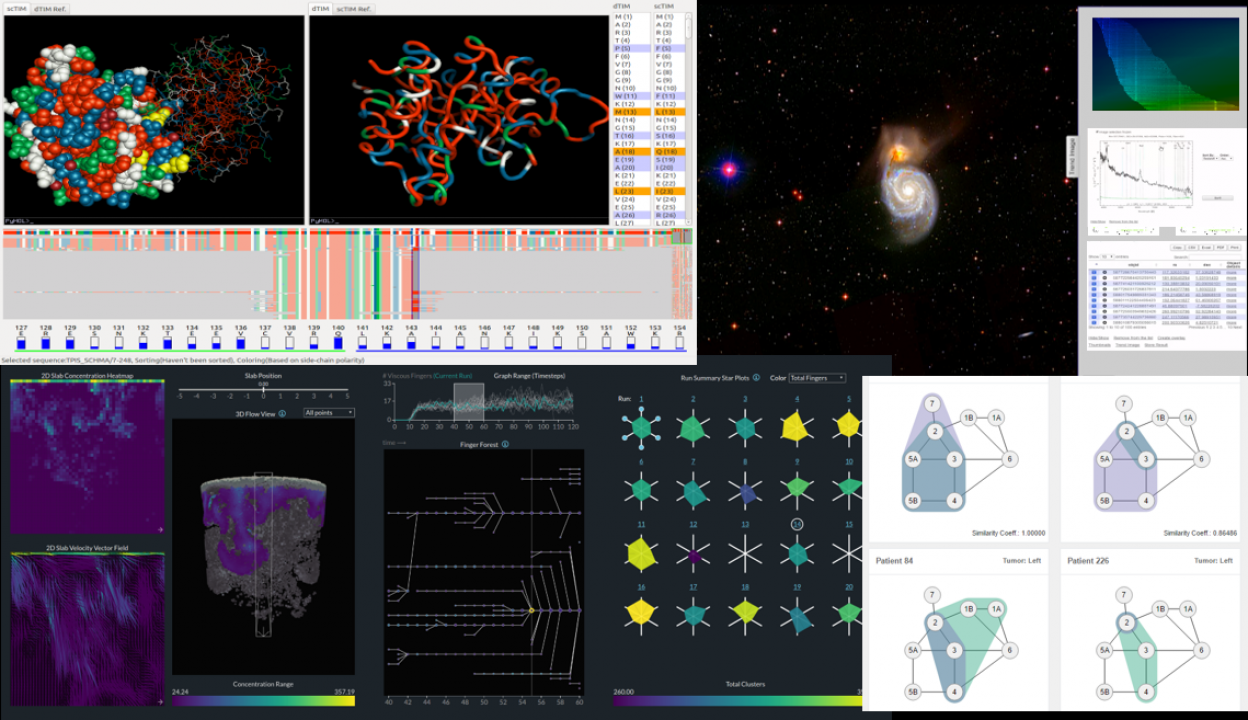|
|
||||||||||||||||||
PhD Thesis Defense Announcement: “Problem-Driven Design Strategies for Scientific Data Visualization”
Participants: Timothy Luciani
PhD Candidate: Timothy Luciani Date: Wednesday, May 15th, 2019 Time: 10 am CT Location: ERF 2068 (Continuum) Committee: Dr. G. Elisabeta Marai (Chair) Dr. Andrew Johnson Dr. Robert Kenyon Dr. Angus Forbes, University of California, Santa Cruz Dr. Klaus Mueller, Stony Brook University Abstract: The scientific community faces an increasing amount of data due to advances in acquisition technologies. Because of the ubiquity of large data repositories in today’s society, scientists have begun to analyze and explore the abundance of data now at their fingertips to both generate and test new hypotheses. However, spatial features often are an essential trait of these large-scale scientific datasets. While established visualization guidelines can provide recommendations that are generalizable enough to be applied to a variety of problems, they are often designed for abstract data (no spatial attributes) of moderate scale. Selecting an effective approach in these situations can be challenging for both novice and veteran researchers, especially when it may not be apparent wherein the data to begin the analysis or how to go about doing so. Visualization design strategies can help lessen this burden by guiding questions such as what data to show, how to display it, and if necessary, in what order to arrange it. This dissertation examines design strategies for visualization collaborations involving spatial data; in particular, how the data and task abstractions, workflow processes, and user expertise affect the decisions behind the design strategies of visualization collaborations involving spatial data. These strategies are actualized through the design and implementation of four integrated systems that demonstrate their effectiveness across the four spatial data problems in science and engineering domains. The merits and limitations of this work are supported through an analysis of each domain problem by demonstrating the complexities involved with interdisciplinary research and the necessity of working directly with domain scientists and their data. These strategies can serve as a reference for researchers who are working on endeavors that similarly characterize to those described in this dissertation. Date: May 15, 2019 |